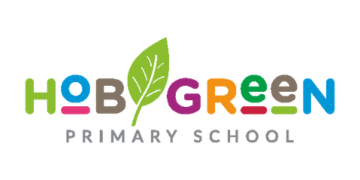As the NGA launches its 2020 governance survey, chief executive, Emma Knights praises the transformation of boards’ practices and warns of more challenges ahead
There has been a revolution in the way governing board meetings are held. As with much of governance, it has been going on under the radar, but it has been a considerable change in a short period, not just for the volunteers who are now using the same virtual platforms many of us are at work, but also for their professional advisers, clerks. A minority of governing boards have not yet met virtually, and as ongoing government advice suggests face-to-face meetings will not be advisable for some time, they will need to have a go. Governance must go on.
Boards are sometimes characterised as fuddy-duddy amateurs, but moving meetings online is not without its glitches, and it’s a big change in dynamics. Criticism doesn’t move anyone forward, and it ignores the fact that governors and trustees have been shown in their hundreds of thousands to be ready and able to step up and adapt when required, continuing to govern from their homes in the interests of their pupils and communities. The sooner that’s done, the sooner they can get to the more difficult decisions of what business to keep on the agenda.
NGA has been advising boards in the first seven weeks to pull back to the essentials in their meetings, beginning with business-critical decisions such as approving the budget and ratifying a school or trust leadership appointment. It’s been impressive to see leadership recruitment continuing virtually during this period. However, as virtual governance continues, boards and executives will now be working out what else needs scrutiny or decision.
Great care must be taken to ensure governance remains supportive
Monitoring will be a key role in the coming weeks. There will be the ongoing challenge of maintaining the required provision for the children of key workers and vulnerable children, potentially adapting provision for a growing number of pupils from 1 June onwards, and ensuring a certain level of continuity of education for pupils who are not in school. These will have to be balanced against the needs and welfare of the workforce.
And in terms of welfare, the wellbeing of school leaders must continue to be a top consideration for governing boards. The governance community at large has shown deep appreciation for the tremendous work carried out by all school staff in the past two months. Being a headteacher, particularly in a single school outside a formal group, can be very lonely. Great care must be taken to ensure governance remains supportive and proportionate, not making unreasonable demands and not stepping over into the operational. Chairs in particular have an important role in checking in with senior leaders to provide a vital sounding board.
So much has been achieved so quickly to make boards more agile, but there is more change coming, and more flexibility needed. This term would normally be the one in which schools and trusts review their strategic priorities, and it will be a different exercise this year amid preparing for a probable re-opening and preparing for the learning loss and the recovery needs of pupils come September.
More than ever, the education sector needs to hear from those who make the strategic decisions in schools and trusts about the challenges they are facing, and the NGA has launched its 2020 Governance Survey for that purpose.
The governors and trustees we have consulted so far overwhelmingly agree that a further return to school should be driven by welfare and wellbeing of communities, families and pupils, including safeguarding and mental health. They tell us they need to understand the purpose of the return and the science behind the decision if they are to undertake their role effectively in ensuring the health and safety of all concerned and support school leaders in communicating the case to staff and parents.
The fundamentals of good governance don’t change: it must be ethical and accountable – listening to the voices of all stakeholders – as well as effectively managed.
The NGA’s 2020 Governance Survey can be accessed here: https://www.smartsurvey.co.uk/s/NGAsurveysw/








I am an academy school governor and really hoping that my secondary school can get moving again in some form this year. However, with exams cancelled, is anyone putting pressure on boards to return the money they have been paid for exams not sat or marked?